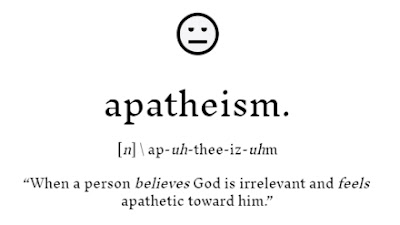The term Anthropocene is increasingly being recognized as a proper term to depict the current geological era, replacing the long-used term Holocene, the era that began some 11,650 years ago. This new term was helpfully explained in an article about two new movies that opened last week.*
Theologian Joerg Rieger,
however, thinks there is a more accurate term to use for the present age, and
he writes about that in his new book.
Joerg Rieger is a professor of theology at Vanderbilt University. He was born in Germany and will celebrate his 60th birthday next week. An ordained Methodist minister, Rieger had already authored/edited 20 books when he joined the faculty at Vanderbilt in 2016.
Theology in the Capitalocene: Ecology, Identity, Class, and
Solidarity (2022) is the title of Rieger’s significant new book. Since I am
also writing a review of it,** I
asked GPT chat for help. Here is how they described the book:
Theology in the Capitalocene by Joerg Rieger is an important and thought-provoking book that offers a critical examination of the intersection of theology and capitalism in the context of the Anthropocene era.
Rieger’s
book is not a quick read nor is it easy to digest all of his salient emphases. One
criticism I have of his valuable book is the overabundance of references to
other scholarly works.
This
would be an excellent book for doctoral students writing their dissertations on
related issues. But it may be overwhelming for the general public. And even I,
who finished a doctoral dissertation over fifty-five years ago (though in a far
different field), found his book challenging.
Here
are some of Rieger’s main emphases that are worth serious consideration,
and I am grateful to him for introducing each of these.
* Emphasis on the importance, and neglect
of serious consideration of, “unpaid reproductive labor” that is directly
linked to discrimination against women.
* Emphasis on the distinction between power
and privilege. This has ramifications that are often overlooked.
* Emphasis on class as a societal structure
rather than “classism,” which is largely based on stereotypes.
* Emphasis on “deep solidarity.” I have
long thought that solidarity is something that we who are privileged, to
whatever degree, can choose out of loving concern by becoming allies of those
who are “underprivileged.”
While there may be reason to
retain some of that emphasis, Rieger stresses that solidarity is a fact that
needs to be acknowledged rather than something chosen in an over/under
relationship.
All of these, as well as his prevalent emphasis on ecological
concerns, are related to the pernicious power of capitalism in the present
world.
My main criticism of Rieger’s book is his apparent
belief that the serious ecological predicament facing the world today is a
problem that can be solved. His position contrasts with what I have written
over the past eighteen months about overshoot and the collapse of civilization.
Most scholars who are currently university professors and embrace deep ecological concerns hold the same position that Rieger does. The following words spoken in the 1930s are still quite relevant and true today:
 |
I can certainly understand why one in Rieger’s position
would not want to publicly talk about the possible “end of the world as we know
it” in a decade or two. If they believed that to be true, most high school
students would likely decide that there would be no use going to college.
Rieger does show considerable compassion for the people who
are suffering now because of capitalism as well as for the natural world that
is being ravaged by the forces of capitalism, and I appreciate that concern.
Still, there needs to be more awareness that we who are now
living in the Capitalocene era will soon be seeing massive numbers of people
(and non-human life) dying in this present age because of the ever-expanding
predicament produced by capitalism.
_____
* See “‘Barbie’ and ‘Oppenheimer’ tell the same
terrifying story,” an intriguing July 19 opinion piece in The Washington Post.
**
Last month I
received a free Kindle copy of Rieger’s book by promising to write a blog
article and/or review of it. The promise was made to Mike Morrell, who operates
“Speakeasy,” a website that offers “quality
books in exchange for candid reviews.” Here
is the link to the rather long review I have written, subject to further revision. Among other things, that review amplifies the too-brief treatment of Rieger’s emphases given above.



.jpg)